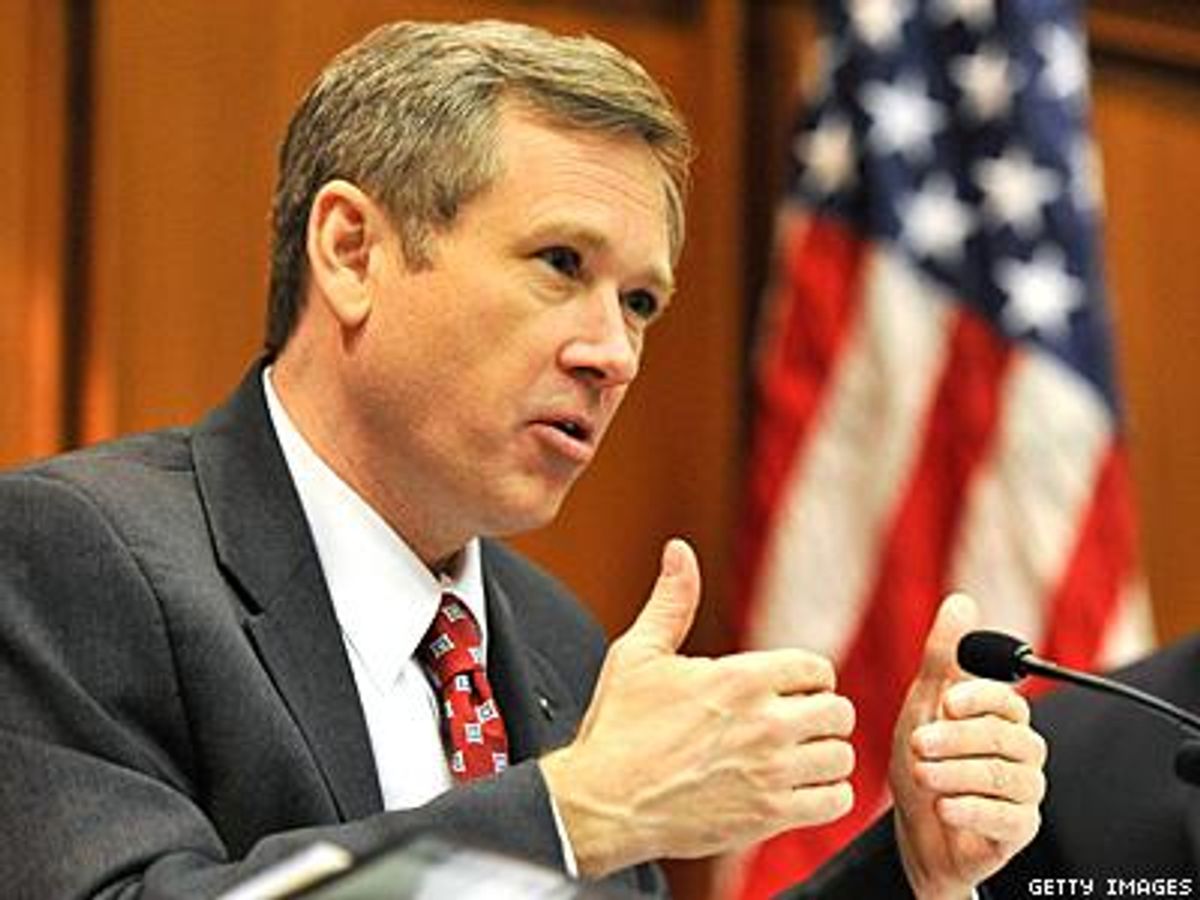Sen. Mark Kirk of Illinois announced his support for marriage equality on Tuesday, making him the second sitting Republican U.S. senator to endorse the right to marry for all couples.
"When I climbed the Capitol steps in January, I promised myself that I would return to the Senate with an open mind and greater respect for others," Kirk wrote on his blog today, after taking a break from his duties to recover from a stroke. "Same-sex couples should have the right to civil marriage. Our time on this Earth is limited, I know that better than most. Life comes down to who you love and who loves you back -- government has no place in the middle."
Evan Wolfson of Freedom to Marry said Kirk is the 50th member of the Senate to express support for marriage equality.
"Senator Kirk's heartfelt words about values of treating others as we'd all want to be treated in our precious time on this planet powerfully make the case for the freedom to marry -- and the need for decision-makers to end marriage discrimination in the United State," Wolfson said.
Kirk and Ohio senator Rob Portman are now the two sitting Republican senators who openly support marriage equality. On the House side, two Republicans-- representatives Ileana Ros-Lehtinen of Florida and Richard Hanna of New York -- have openly expressed support for marriage equality. Both Kirk and Delaware senator Tom Carper came out in support of marriage equality today.
"Senator Kirk and Senator Carper have shown tremendous leadership in announcing their support for marriage equality," Human Rights Campaign president Chad Griffin said. "It is a sign of our progress that so many of their colleagues are showing the same political will. Democrat or Republican, there can simply be no excuse for standing on the wrong side of history when it comes to this basic question of justice."
As a U.S. representative, Kirk voted against the 2003 Federal Marriage Amendment, which would have put a ban on same-sex marriage into the U.S. Constitution, but the Navy reservist also voted against the repeal of "don't ask, don't tell."

















































































Viral post saying Republicans 'have two daddies now' has MAGA hot and bothered